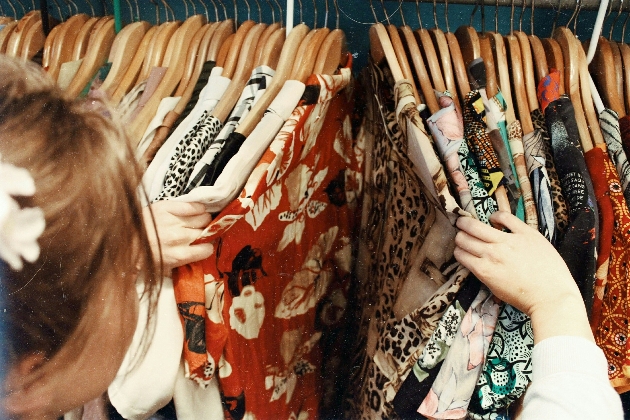Posted by Louise Prance on 17 June 2024
Sustainability experts from BusinessWaste.co.uk are calling on retailers to implement take-back programs for unwanted clothing to help combat textile waste – just like the current take-back scheme for electricals operating across the UK.

So, what can be done to reduce this negative environmental impact? Sustainability experts from BusinessWaste.co.uk are calling on retailers to implement take-back programs for unwanted clothing to help combat textile waste – just like the current take-back scheme for electricals operating across the UK.
An old clothing take-back initiative comes amid growing concerns about the sustainability of current practices in the textile recycling industry, as highlighted by the Textile Recycling Association (TRA).
The textile recycling sector is facing what the TRA describes as a 'perfect storm'. Economic crises, global market challenges, and the huge influx of fast fashion that's flooded the market with low-quality, hard-to-recycle clothing are causing big problems with textile waste.
Mark Hall, co-founder and recycling expert, suggests that retailers taking responsibility for the lifecycle of their products will alleviate pressure on the recycling sector. By accepting returns of unwanted garments, retailers can ensure that clothing is properly sorted, recycled, recovered, or repurposed.
This will avoid high volumes of textiles ending up in landfills and would be a big support in the shift towards a circular economy. There's lots of financial strain on waste collectors who are currently collecting textiles that they then must pay to dispose of, if they're not processed properly. The situation is dire, with textile sorters across the UK and Europe reporting full warehouses and halted collections, as they struggle to find suitable end markets for the vast volumes of low-quality materials.
Alison Carey from Chris Carey's Collections also notes that the current model of textile recycling is no longer viable, with an increase in volumes of non-reusable material coming at a high cost for collectors and sorters. She calls for urgent reform to support this essential global industry. BusinessWaste.co.uk suggests that retailer-led take-back programs might serve as a solution to alleviate the industry crisis and as a step towards more sustainable consumer habits.
These programs could encourage consumers to think more critically about the lifecycle of their clothing and reduce the environmental impact associated with textile waste. The take-back schemes can also be part of larger corporate social responsibility (CSR) strategies that enhance the company's impact on local communities.
For example, retailers can partner with local charities to donate refurbished clothing, supporting local needs and improving the quality of life for community members.